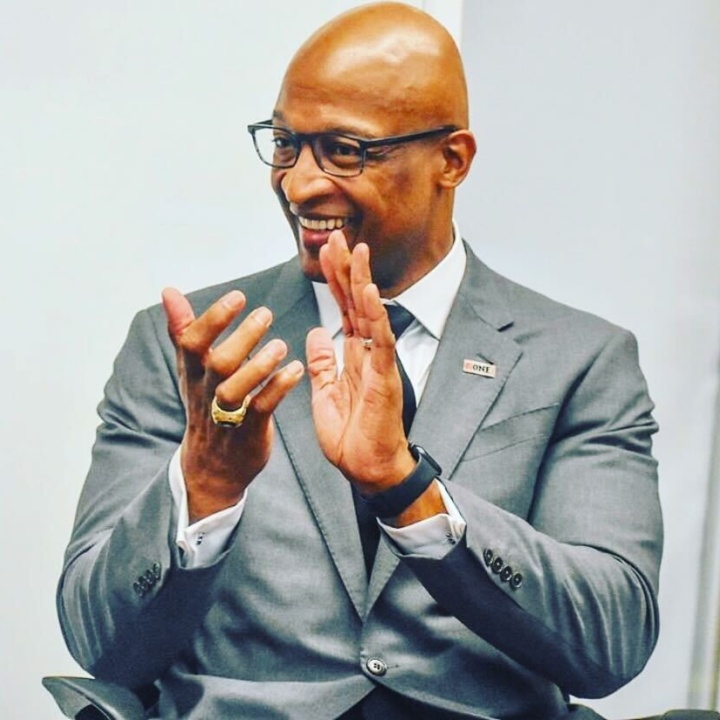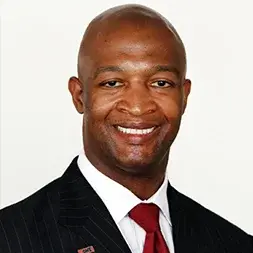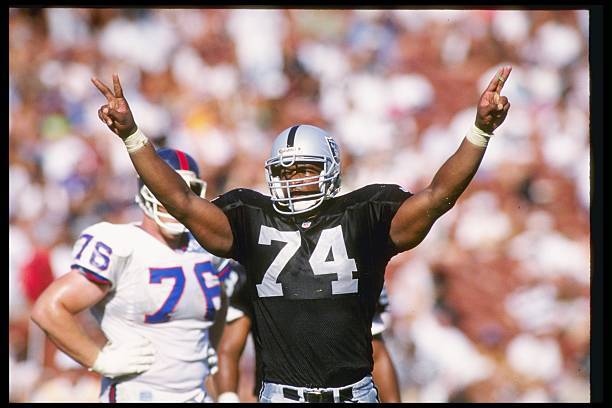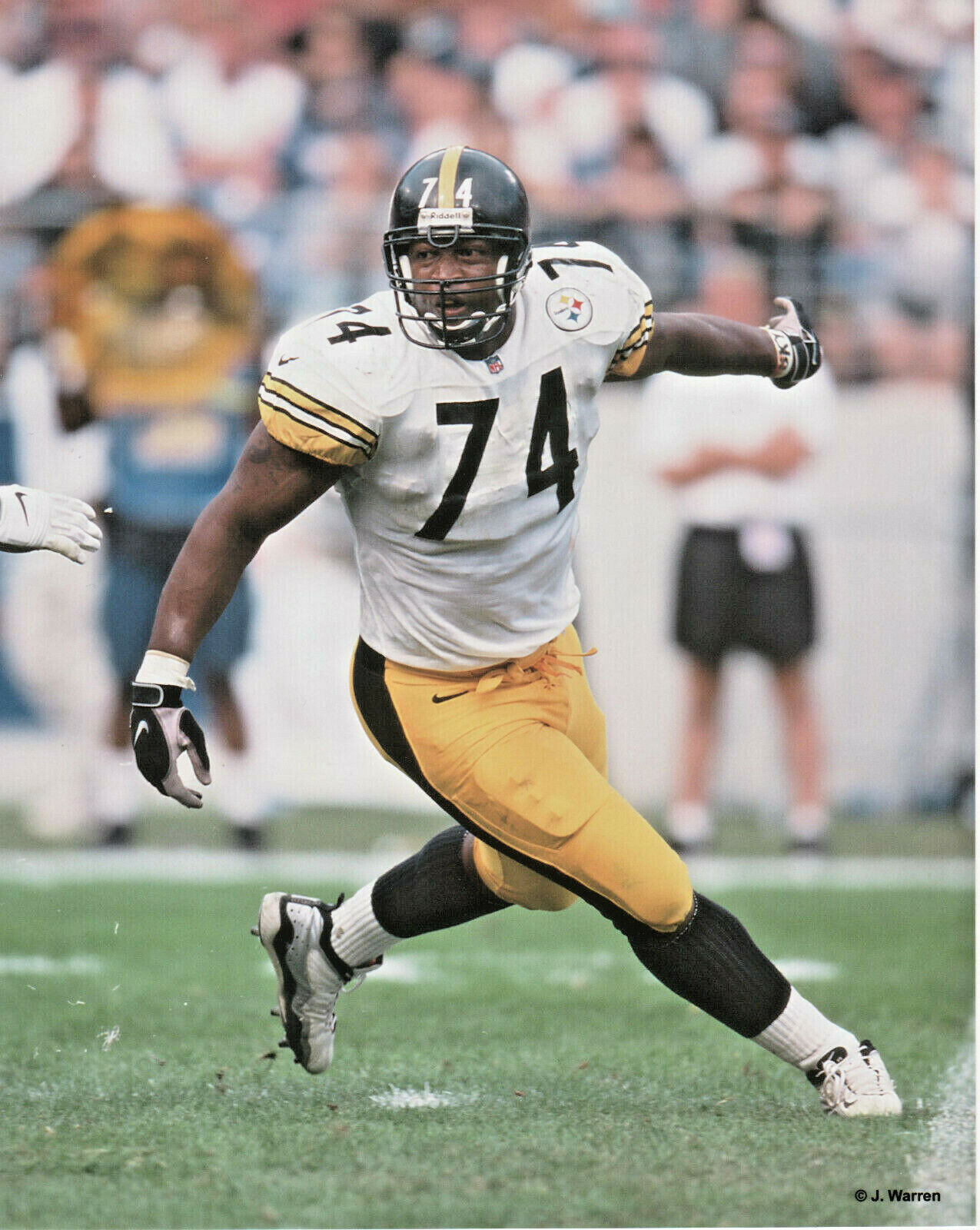
Catching Up With Former Player Rep: Nolan Harrison III
We interviewed Nolan Harrison III, former NFLPA Player Rep, Executive Committee member, and current Senior Director of the NFLPA Former Player Services Department. He was drafted in 1991 after a successful collegiate career at Indiana University, going on to earn a ten-year NFL career with the Raiders, Steelers, and Commanders. As a Player Rep, he led the charge to regulate financial advisors and to ban the career-threatening practice of 'chop-blocking.' Currently, he focuses on former player advocacy and providing benefits, education, discounts, and other valuable resources to the former player community.

What inspired you to become a Player Rep?
My Raider teammate Tim Brown was one of the biggest reasons why. So, when I got drafted by the Raiders, Tim was already there, and he was a Player Rep at the time. To understand the context of when I was drafted, I was drafted in ‘91. We were in a labor battle and there was no CBA. So, I got a crash course in what it's like to be drafted into the NFL under league rules with no collective bargaining agreement governing it. This was pre-free agency time. We didn't win free agency in court until ‘93. There was a lot of stuff going on and Tim was the guy who really educated me and taught me the importance of the union and standing up for our guys and making sure that what happened in the past with the unfair imposed system doesn't happen again. Since I was a victim of that, I could have had more money starting in ‘91 when I was drafted all the way through my career, it became something that I was very, very interested in.
What lessons were you able to take away from your time as a Player Rep?
The lesson I took from entering the league at that time is that you have to be aware. You have to know what's going on. You have to educate yourself. It's not part of the normal process of playing and preparing for games and things like that but you really have to prepare yourself and understand what your union is doing for you. That was a springboard for me for other things. During my time as a Player Rep, we got a lot of great stuff done. I spearheaded the group that got chop-blocking banned, and this was before I was elected as a Player Rep. So, Tim and Chester McGlockton, God rest his soul, both had the Player Rep positions locked down with the Raiders. So when I went to the Steelers there was an opening and I got elected as a Player Rep because of the knowledge I had built up over my six years at LA/Oakland. One of the things I was working on at the time was chop-blocking. There were a lot of guys who were getting either career-ending or season-ending injuries because of that, and it was a thing that was continually allowed to happen. I gathered testimony, film evidence, and signatures from all the defensive front sevens in the NFL. Former NFLPA Executive Director Gene Upshaw, and the NFLPA President at the time Trace Armstrong, really backed me in my testimony to the competition committee to get chop-blocking banned. The Union was there in the room with me supporting me the whole way and I ended up getting chop-blocking banned. I almost ended up getting elected to the Executive Committee in my first year because of all the work that I’d done, and people had seen the work I’d put in which was crazy to me. So that was an absolutely huge event for me. Then we tackled the financial advisors. It was myself and another Player Rep John Fina who actually proposed a resolution that we start regulating financial advisors because they were stealing guys' money. We regulate agents and we thought we should be doing that with financial advisors at the same time. Little did I know but years later, I ended up having to go through the process we proposed at that rep meeting to become a registered financial advisor when I was in finance. Things like that, the things that you do as a Player Rep do matter if you really take it seriously and you're in it for the right reasons. You never know, the proposals and resolutions you could put up could end up being something that's life-changing down the road as long as you're participating and you're leading for the right reasons, the right way.

Why do you think it’s important for guys to be active within the NFLPA?
One of the things that our last Executive Director De Smith really tried to punch home to the current players is that they are in the business of football, and if you don't protect the rights that you have on the field, you're lessening your ability to really be a businessman and take advantage of being in the business of football. So, your player rights, maximizing those things, making sure that the practice rules stuff is taken care of, making sure that if you see something that's wrong, you're contacting Don Davis and his team of player directors. All those things are extremely important. Understanding that you can stand up for those things to make sure that you're not doing three or four-hour Tom Coughlin practices, which is against the rules, and then guys end up getting hurt. Guys' careers have ended because the teams weren't following the rules, and nobody stood up, no one said anything. You also need to know about your benefits from the beginning of your career to the end. I'm sitting in this chair now as NFLPA Senior Director, there’s 28,000 of us, and I know so many guys who weren't paying attention when they played, not understanding what their union was doing for them, even post-football. They had no idea there were former player benefits available to them post-football, let alone all the current player benefits that are available to you if X, Y, and Z happens. So, it's part of what you are and part of who you are as a player and you should be involved in the union to get that knowledge and at the very least understand what the Player Reps that you've elected are telling you. Understand the information that they're being given to share with you. I think that's extremely important. It's just as important as knowing the plays, the coaching personnel in your building, loving up on your training staff, and loving up on your equipment managers. You should also be loving up on your union people because they provide an extremely valuable service.
What are some lessons that you were able to take away and apply to your career now?
One of the things that I thought was extremely important that has guided me through the years in business is that one should never be intimidated by things you don't know or understand. Ask questions and learn. It's easy to say “I didn't know that, I'm not familiar with that one, so I'm going to stay away from it.” Getting in front of billionaire owners during my playing career, (who were multi-millionaire owners back then), pleading our case for X, Y, and Z, with knowledge and passion really springboarded me. Negotiating multi-million-dollar contracts. There isn't a room that I've stepped into, either today or just retiring from the game, that I wasn't prepared for. That’s a direct result of being a Player Rep. Standing up and being knowledgeable and passionate about your views and your beliefs, even though there's going to be others that might not agree with you… I wouldn't be able to do that on a public stage if it wasn't for my time and experience being a Player Rep. Those lessons were invaluable and key to what I took from being a Player Rep. I think those experiences have really catapulted me going forward to today, and are always in the back of my mind, those experiences and lessons are always there. During the chop blocking journey, I was negatively viewed by the press. There were also offensive linemen and defensive linemen in the league who actually came out against banning chop blocking and were like “You just got to be an athlete” or “stop crying”. I'm not going to name names, but there were some big-name dudes that I'm like, “Are you kidding me? This is for the betterment of everybody. Saving seasons, careers, and post-career lives”. So that’s why I tell folks stay the course on those things you’re passionate about that will genuinely and unselfishly help people even though you're going to hit troubled waters on that journey. Those are just some of positive experiences and lessons I took from being a Player Rep.
What are you doing now in your career?
I'm the Senior Director of Former Players Services. I manage and develop not only our awesome department internally, but also our chapter program of 35 chapters around the country. I am constantly working to develop resources, benefits, and opportunities for our former player population. I focus on educating all our guys to make sure that they're not missing out on anything that they've earned. That is the 15,000-foot view of the job that I have, making sure that our guys are taken care of. Whether that's advocating for things when it comes down to the CBA for us to get more benefits, to fighting to preserve our workers comp rights, or to just the day-to-day trying to get bigger and better discounts for our guys, it’s all for us. Our youngest guy is 21, our oldest guy is 100. So, making sure that I have a clear-eyed view of the whole picture using sound data and pulling together all the resources I can for our guys to help us be more successful when we get done playing is always my mindset.

What’s a piece of advice that you would give to players transitioning out of football?
I would say start the process of education before they get done playing. I was already an insurance agent three years before I even left football. I started that because I went to seminars that the teams were putting on for internship programs. Now the union has externship programs which is outstanding. If you're participating in those things, then it makes the transition easier. It's always hard to leave something that you've loved and done for the great majority of your life. But taking advantage of those experiences is extremely important. The next thing is when you're done-done, and you know you're done, reach out to your player director, whoever that guy was. If you're looking out for those guys, they can guide you to where you're supposed to go, if for some reason you haven’t been paying attention. If you have, there's a road map that we provide that you need to follow, and make sure you follow it. Make sure you know what your benefits are, when they start and when they end. Make sure you're signing up with the Trust if you have two or more credited seasons and taking advantage of that benefit. If there is a need, you know that there are emergency resources through the PAF here in the FPSD. Download the NFLPA Former Player app so you have all the benefits and resources at your fingertips so that no matter what happens in your life, you're prepared, and you know the things that are available to help you.
What’s a piece of advice that you would give your younger self early in your career?
I was so blessed. I had a lot of good guys and older guys in the locker room who paid attention to me and gave me great advice. I don't think I would have lasted 10 years in the National Football League without it. But if I were to say anything, I would give myself the advice of really paying attention to the networking opportunities that are available to you when you're playing. Those doors do not stay open and as shallow and as transparent as it is, it’s the truth. Once you're done playing, you're no longer the unicorn anymore. You're not that star they could say “I'm going to network with this guy because I see him on Thursday, on Sunday, and on Monday.” I wish I would have been better at that, especially being an LA Raider at the time. There are a lot of people I did keep in contact with, but there were a lot of high-level people that I met in my first two or three years in the league that I really wish I had known that networking was important and kept those relationships going.
What does NFLPA Fraternity mean to you?
A lot of us played for different teams. The era of only playing for one team in your life is pretty much gone. There's a ton of money in free agency, which I think is a great thing. But one thing that binds us all together is that we are part of this union, this football fraternity. We are unicorns that are part of the 1/10 of 1% of people who could play in the NFL. That is a strong special fraternity. This fraternity, no matter who you played for, no matter how long you played, is a family that fights together for each other, supports each other, and tries to get bigger and better benefits for each other, under one unified banner, the NFLPA. That is what this union is and I’m proud of being part of this fraternity. That's what NFLPA Fraternity means to me.
